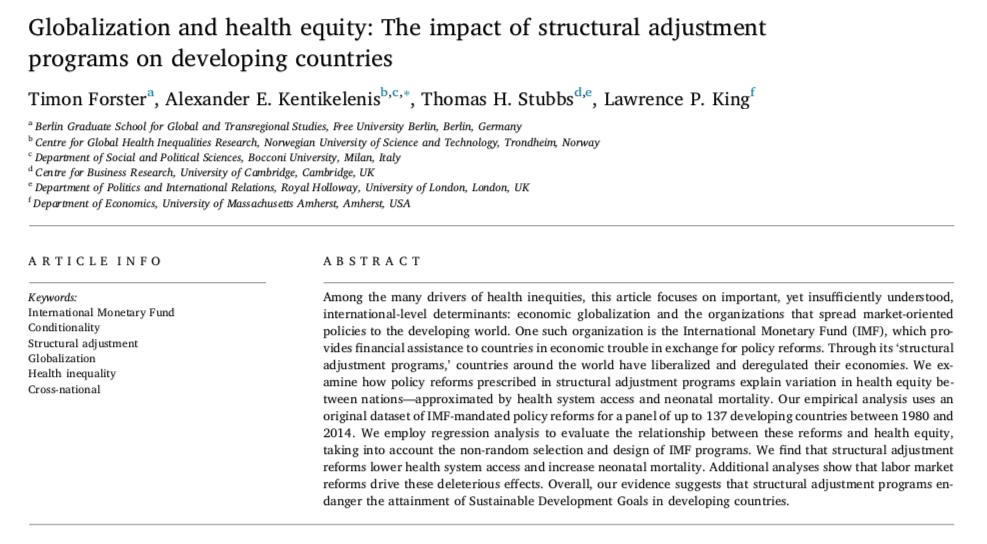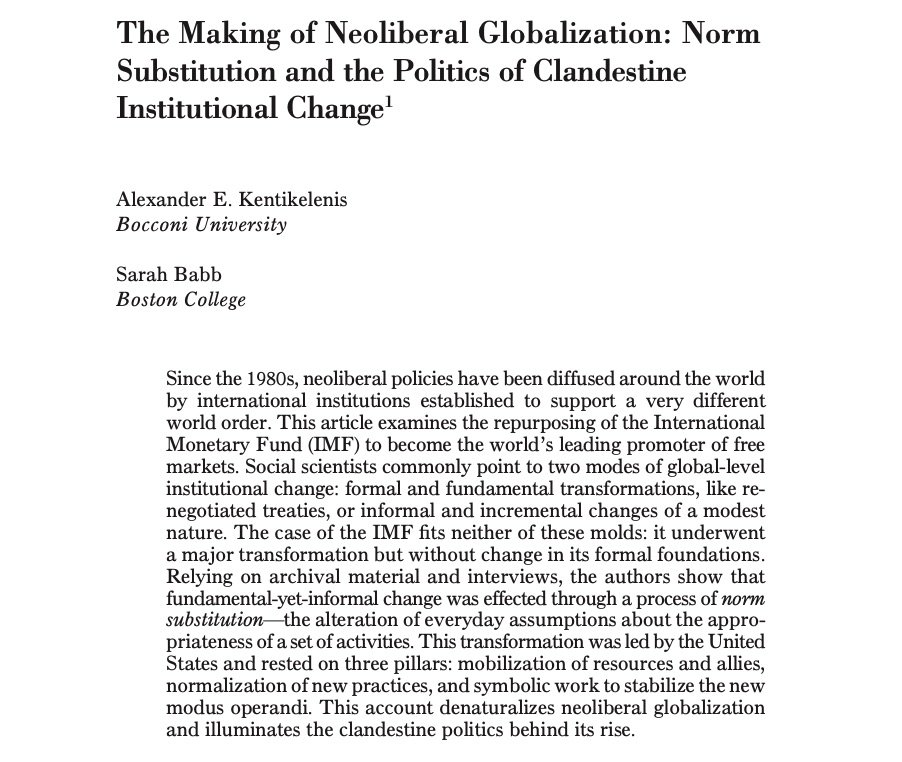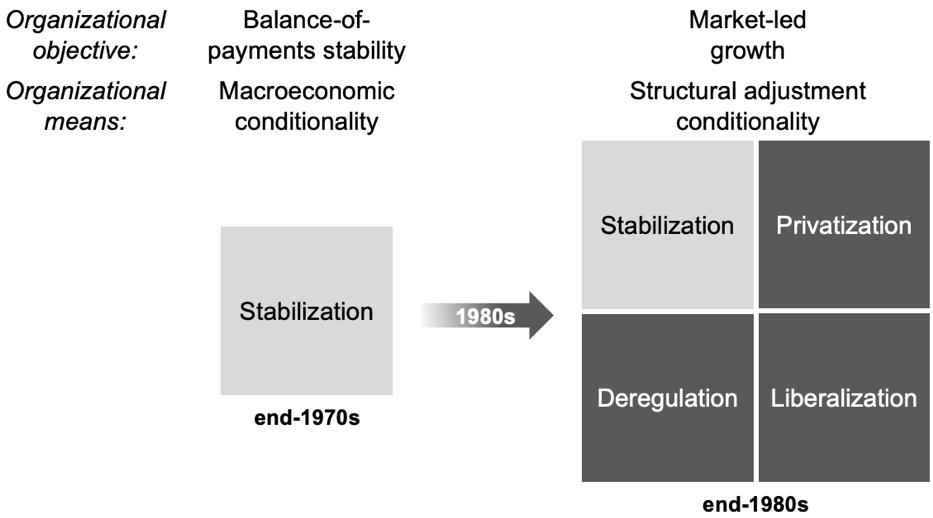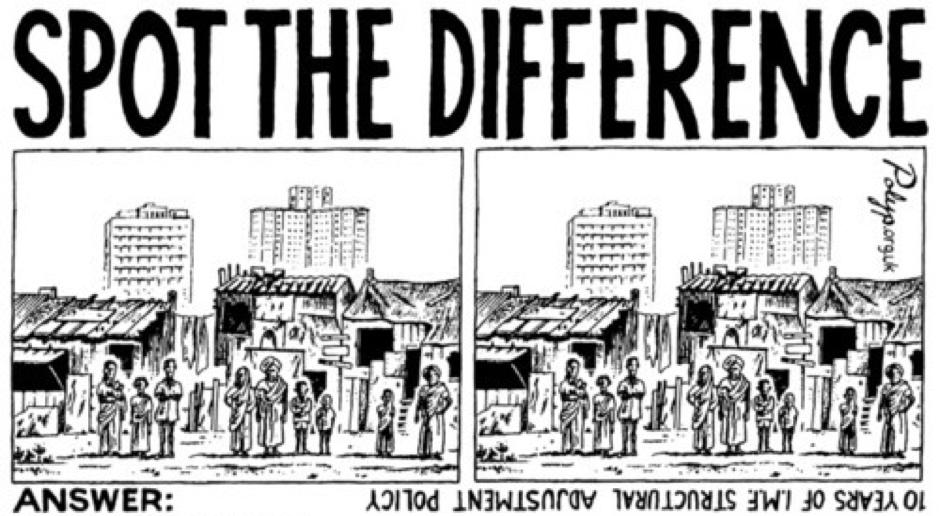In @LancetGH, we review policies & alternatives.
Thread on article w/ @DanielaGabor @IsabelOrtizUN @thomstubbs @martinmckee @davidstuckler
thelancet.com/journals/langl…
This constrains governments from spending on health systems at a time when capacity urgently needs to expand and depresses economic activity.
2/17
But is this the best way to achieve lasting global health security?
3/17
france24.com/en/20200326-we…
(a) Rapid-disbursement funding: $50bn in total
(b) Catastrophe containment & relief support: ~$400mil available; maybe more to come
4/17
See overview by @ChristinaLaska1
5/17
Great, but what could go wrong?
6/17
imf.org/en/News/Articl…
These can adversely impact health bc they include ill-designed measures like budget cuts, reducing number/wages of health workers, privatizations...
7/17
thelancet.com/journals/langl…
8/17
worldbank.org/en/news/press-…
This is despite IFC's lack of expertise in building public health systems, and poor results of public–private partnerships in health
9/17
doi.org/10.1080/014365…
But will this strengthen public health systems that are struggling now or instead finance private health services that might take much-needed staff from the public sector?
The latter seems more likely, for 2 reasons.
10/17
Is there an alternative? We argue, yes.
12/17
doi.org/10.1016/j.socs…
Public health systems need funding to recruit health workers, run facilities & purchase equipment/drugs. These investments would help ensure universal coverage.
See discussion by @IsabelOrtizUN @thomstubbs
13/17
ipsnews.net/2020/03/fighti…
Injecting international liquidity will help affected countries.
See proposals by @KevinPGallagher @JoseA_Ocampo @UliVolz
14/17
ftalphaville.ft.com/2020/03/20/158…
Govts need extra fiscal space. Capital controls can stop destabilising mass outflows & IMF can assist countries instituting them
See proposals by @DanielaGabor @Jayati1609 @adam_tooze et al.
15/17
ft.com/content/350538…
See call by @ECA_OFFICIAL
16/17
uneca.org/stories/africa…
The COVID-19 pandemic is an opportunity to do things differently.
/end










